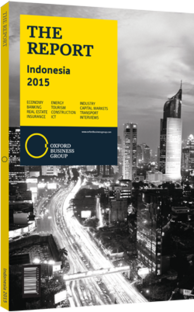Bambang Brodjonegoro, Minister of Finance: Interview

Interview: Bambang Brodjonegoro
How will the government prioritise the reallocation of savings from the fuel subsidies cut to address the country’s economic weaknesses?
BAMBANG BRODJONEGORO: Savings from the new subsidy scheme will be allocated to infrastructure development, particularly basic infrastructure promoting food security, energy security and connectivity. Indonesia is the largest archipelago in the world and we must utilise our maritime transport potential. We need to improve connectivity on land as well, but we have allocated significant space for new seaports and we will improve capacity at existing ports, while increasing the fleet size. We are also working on a law to support domestic shipyards with fiscal incentives, and another priority is improving the social protection system and ensuring that the health insurance scheme is supported.
Through what means is the government looking to improve the disbursement of funds?
BRODJONEGORO: We revised procurement regulations to ensure that the process will be quicker than it has been in the past. Additionally, the government will also benefit from the new land acquisition law implemented in January 2015, which places an 88-day limit on the land procurement process. Following this period the government has the right to occupy and utilise the land for infrastructure projects. We also increased spending for state companies to carry out their own projects, especially within the infrastructure sector.
How could the decision to join the China-sponsored Asian Infrastructure Investment Bank (AIIB) help to alleviate Indonesia’s budgetary constraints?
BRODJONEGORO: To meet Indonesia’s infrastructure needs, relying on the budget will not be enough and may only cover the cost of basic infrastructure. Nor will it be enough to rely on funding from multilateral agencies like the World Bank and the Asian Development Bank, so the new AIIB will be critical. We still need to ensure the bank will meet global service standards, thus we have four or five working group meetings until operations commence. The AIIB will be utilised for support power plants, toll roads, railways and other projects not covered by the budget. Specifically, it will focus on medium to large-scale infrastructure projects and will help to meet our demand for power. We need an extra 35,000 MW over the next five years and I believe AIIB can assist in financing the projects to meet this.
What strategies will you be using to ensure Indonesia’s tax system is both more effective and has adequate support from law enforcement?
BRODJONEGORO: We admit that we have underachieved in tax revenue performance, so in 2015 we will be focusing on improving taxpayer compliance. To achieve the 2015 tax revenue target of Rp1370trn ($113.24bn), we intend to be stricter in terms of law enforcement and will institute a joint team between the police and attorney general’s office to ensure cooperation and smoother revenue collection. We are also going to work towards expanding the tax base, which at 13% of GDP, is well below its potential. The ideal tax ratio, according to the President Joko Widodo would be 15-16% by the end of his five-year term in 2019.
What steps will be taken to mitigate fiscal uncertainty derived from external risks to the economy?
BRODJONEGORO: The exchange rate of the rupiah is a concern, but the more important thing is its stability. The government will be targeting policies to reduce the trade deficit, or increase the surplus, and also reduce the current account deficit, which will be critical for improving the value of the rupiah. While businesses in export-oriented industries will benefit from a weak rupiah, exports will not be the main source of growth in 2015. Rather, growth will stem from steady household consumption and private and public investment, and we expect to see economic growth of 5.5% to 5.8% in 2015. However, we must watch declining oil prices carefully, as they reduce commodities prices.
You have reached the limit of premium articles you can view for free.
Choose from the options below to purchase print or digital editions of our Reports. You can also purchase a website subscription giving you unlimited access to all of our Reports online for 12 months.
If you have already purchased this Report or have a website subscription, please login to continue.

